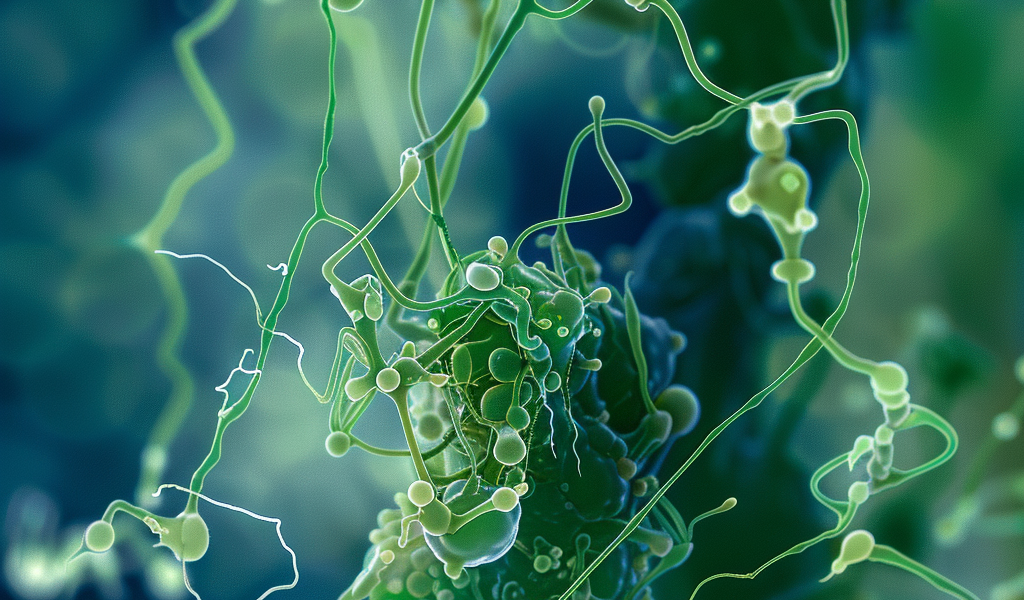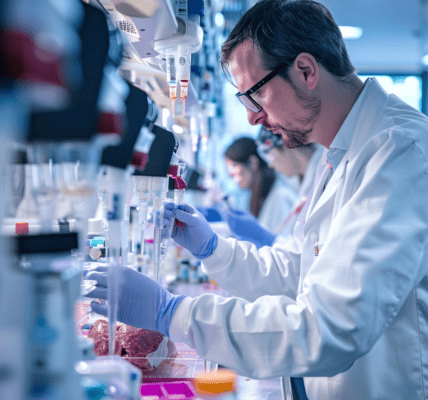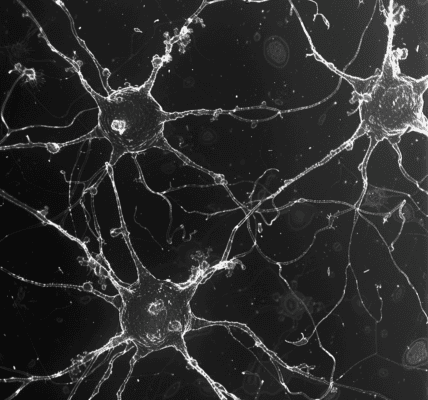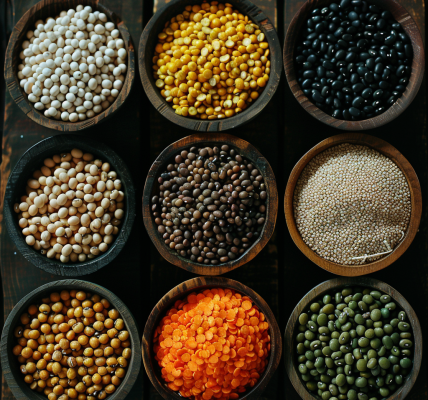University of Copenhagen Scientists Utilize Blue-Green Algae to Create Sustainable ‘Meat Fiber-Like’ Protein Strands
Scientists from the University of Copenhagen have made a groundbreaking discovery in the field of sustainable food production. By utilizing blue-green algae as a surrogate mother, they have successfully coaxed the microalgae into producing ‘meat fiber-like’ protein strands. This achievement could revolutionize the production of sustainable foods, providing the right texture with minimal processing.
The push towards plant-based diets and alternative proteins is driven by the need to reduce the consumption of animal-based products for environmental reasons. However, one of the challenges has been replicating the texture and mouthfeel of traditional animal-based foods in plant-based alternatives. Additionally, some plant-based protein sources are not as sustainable due to the resources required for their processing.
The recent research from the University of Copenhagen offers a promising solution to these challenges. By harnessing the potential of blue-green algae, specifically non-toxic cyanobacteria, the scientists have achieved a significant breakthrough in sustainable food production. Professor Poul Erik Jensen of the Department of Food Science explains, ‘Cyanobacteria, also known as blue-green algae, are living organisms that we have been able to get to produce a protein that they don’t naturally produce. The particularly exciting thing here is that the protein is formed in fibrous strands which somewhat resemble meat fibers. And, it might be possible to use these fibers in plant-based meat, cheese or some other new type of food for which we are after a particular texture.’
The research, published in ACS Nano, demonstrates that cyanobacteria can be utilized as host organisms for the new protein by inserting foreign genes into a cyanobacterium. Within the cyanobacterium, the protein organizes itself as tiny threads or nanofibers, offering a natural and sustainable approach to protein production.
One of the key advantages of this approach is the minimal processing required, which contributes to maximum sustainability. By focusing on cyanobacteria and other microalgae as potential alternative foods, scientists are capitalizing on their ability to grow through photosynthesis and their high protein content.
This groundbreaking research opens up new possibilities in the realm of sustainable food production, potentially paving the way for a future where plant-based foods can offer not only nutritional benefits but also the desired texture and mouthfeel previously associated with animal-based products.





